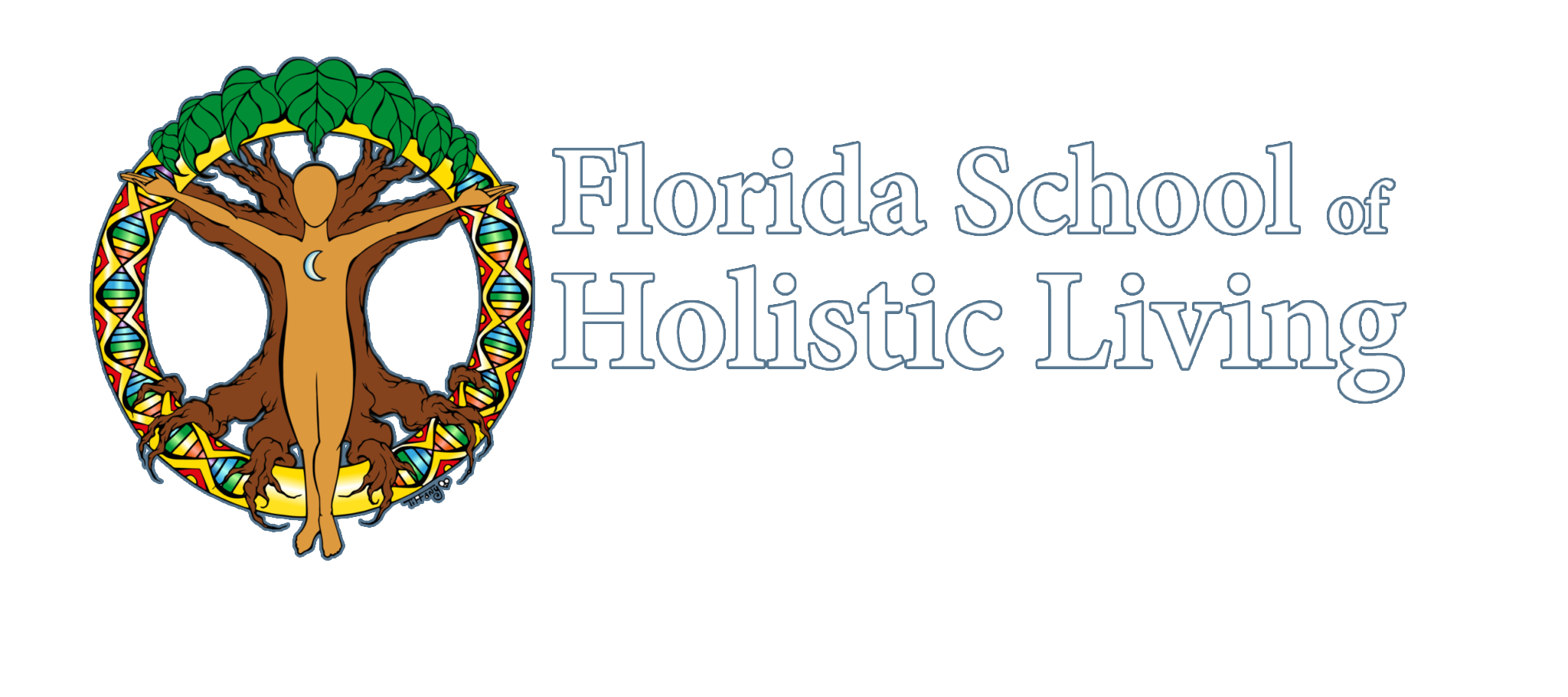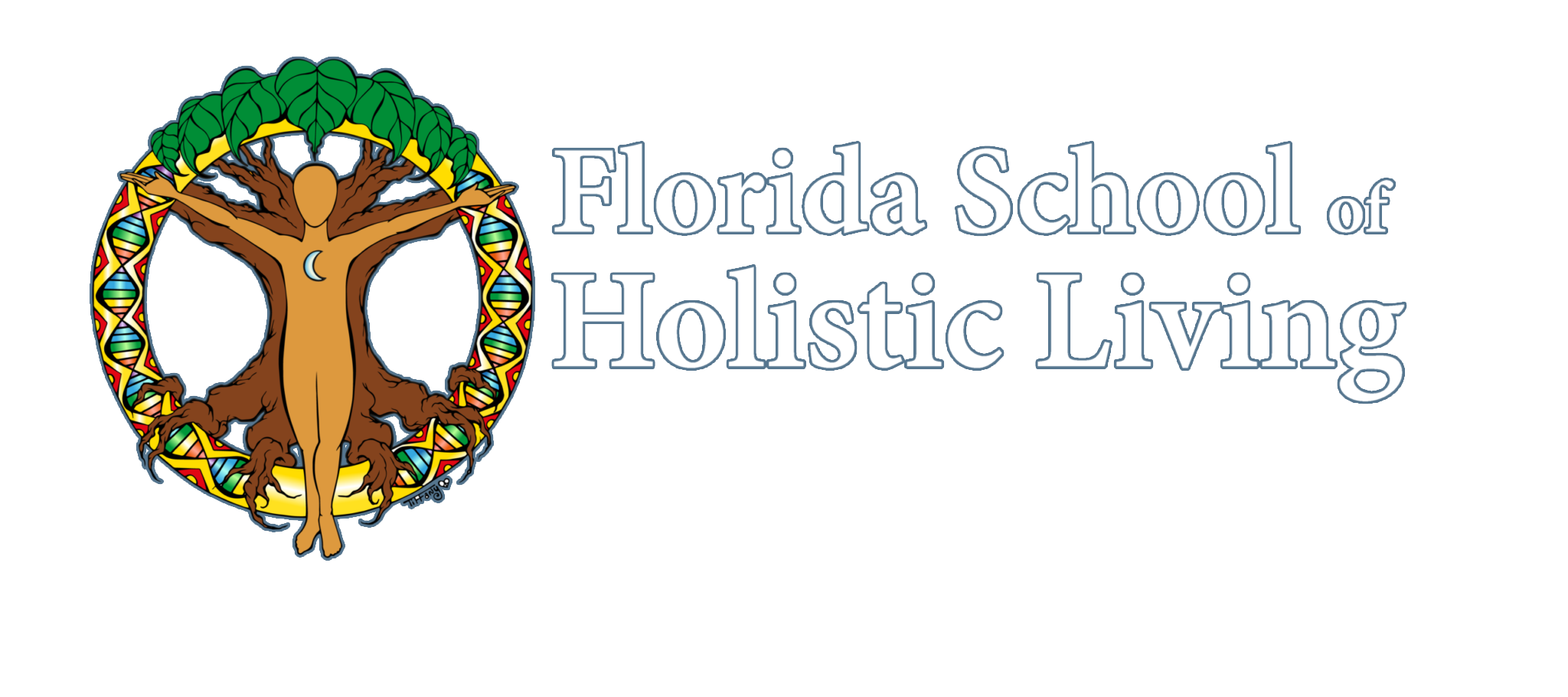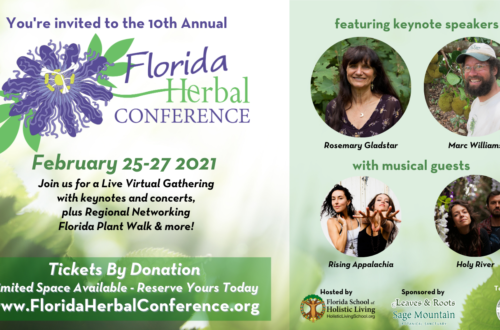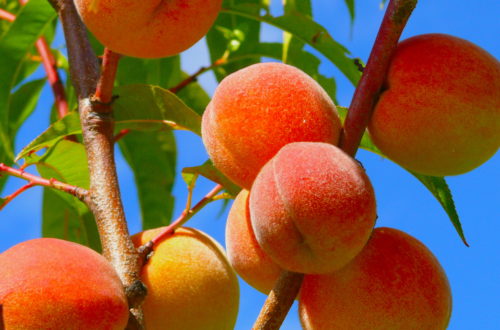Reclaiming the Practice of Self Care
At Florida School of Holistic Living, self care is a foundational component to our core curriculum. The core curriculum is indeed an elaborate herbalist training, but we have to care for ourselves if we’re going to be caring for others. As herbalists, we know it requires an immense amount of energy to hold space for others in need of healing.
It’s uplifting to see the conversation of self care appear in the media. Publications like NPR and Girlboss are posting articles about self care which tells us large audiences are ready to receive the information (at least according to their market research). Slowly but surely, our society is becoming more aware and open to dedicated practices like self care. To us here at FSHL, it’s more than taking care of our physical selves, not just for millennials, and it’s definitely not the “self-care” nail kit that marketing tactic is trying to sell you. Self care is a sacred practice that offers emotional, spiritual, and physical support on an individual and societal level. Now more than ever it is important to reclaim the practice of self care so each of us can have the sacred time to remember, reflect, and return to what we know to be true.
Self Care for the Herbalist
An excerpt from our Community Herbalist Program: “Herbal practice is much more than just knowing enough about herbs to make recommendations. Every practitioner soon discovers that clinical practice is a deeply personal process that requires willingness to continually examine your personal beliefs, refine your definition of health and healing, and expand your ability to listen and communicate.”
When we take the time to assess our inner personal landscape, we then are coming from a better place of understanding and authenticity. This sense of openness and connectedness is what’s needed to tap into the communication of the green beings. We hear this time and time again as herbalists: take the time to connect with yourself and the plants individually. This is what makes the difference in any herbal setting. Through self care we can better serve and connect with ourselves, which then allows up to be a more receptive and communicative vessel for the plants and the Earth.
Self Care for Individual Healing
It’s amazing the amount of healing one person can receive by practicing self care. Setting aside time to focus on oneself is powerful. It’s intentional and it makes yourself a priority. Self care cultivates awareness in an individual, and awareness is the fundamental requirement for any healing. By becoming aware of feelings and bodily responses, it’s easier to piece together the patterns to learn what ultimately does or does not serve you.
In the herbal community clinic here at FSHL, sometimes all we offer the client is to practice self care once a week or once a day. Explore what serves you and makes you feel whole; prioritize that. Incorporate it into your life however it makes sense for you to do so. Don’t underestimate the power of taking intentional time for yourself.
Self Care for Societal Healing
People and society today are deeply deprived of the connection to self. Some say it’s the root cause of the dis-ease our culture is experiencing. The awareness that is born out of self care is missing so greatly from our society that people have a difficult time identifying what we know to be true. Our consciousness is clouded with frenzied thoughts prohibiting us from being truly present, compassionate, and resilient.
As with working in the clinic, tending to ourselves allows us to be the best person in our community. Gandhi’s famous saying “Be the change you wish to see in the world” really rings true here. Just by simply being your best self you are going to be an example to others and influence them to be their best selves. Your light and energy will influence and change someone else’s light and energy.
Mental and spiritual health are as important as physical health. The current events happening in our world today are the outputs of the condition of our mental and spiritual states as a society. Our culture has evolved into one where there is a perverse understanding of balance. Ensuring you have proper work-life balance can be seen as laziness or lack of commitment. Taking intentional time for yourself can be seen as weakness or selfishness. Being busy is somehow equated to being important. All of these things could not be further from the truth; it’s quite opposite. These social norms are what’s prohibiting us from reflecting on our society and giving us the capacity to do the necessary hard work to change it.
I’d like to leave you with this excerpt, beginning with and interpreting the story of Cura, the divine mythological goddess for Care, from Georgetown University’s “History of Care” written by Warren Thomas Reich:
As Care (Cura) was crossing a river, she thoughtfully picked up some mud and began to fashion a human being. While she was pondering what she had done, Jupiter came along. (Jupiter was the founder of Olympian society, a society of the major gods and goddesses who inhabited Mount Olympus after most of the gods had already appeared.) Care asked him to give the spirit of life to the human being, and Jupiter readily granted this. Care wanted to name the human after herself, but Jupiter insisted that his name should be given to the human instead. While Care and Jupiter were arguing, Terra arose and said that the human being should be named after her, since she had given her own body. (Terra, or Earth, the original life force of the earth, guided Jupiter’s rise to power.) Finally, all three disputants accepted Saturn as judge. (Known for his devotion to fairness and equality, Saturn was the son of Terra and the father of Jupiter.) Saturn decided that Jupiter, who gave spirit to the human, would take back its soul after death; and since Terra had offered her body to the human, she should receive it back after death. But, said Saturn, “Since Care first fashioned the human being, let her have and hold it as long as it lives.” Finally, Jupiter said, “Let it be called homo(Latin for human being), since it seems to be made from humus (Latin for earth)” (see Grant, 1960; Shklar, 1972).
The meaning of the word “care” in this myth reflects the Stoic sense of an uplifting, attentive solicitude; it is in light of this positive side of care that we can understand the deeper meaning of the Myth of Care. Yet the word “care” is not without tension: The lifelong care of the human that would be undertaken by Cura entails both an earthly, bodily element that is pulled down to the ground (worry) and a spirit-element that strives upward to the divine (Burdach, 1923; Grant, 1960). The positive side of care dominates in this story, for the primordial role of Care is to hold the human together in wholeness while cherishing it. It is significant that a myth communicates the meaning of care, for one of the major functions of myths is to offer ancient narratives that make it possible for people to understand the meaning of their experiences regarding the basic characteristics of human life (Doty, 1991; Frye, 1971). The Myth of Care conveys an understanding of how care is central to what it means to be human and to live out a human life. It also provides a genealogy of care in light of which to rethink the value of care in human life.
Modern psychology teaches us that those who are cared for from birth (which is the image conveyed in this myth) develop the nurturing power to care for self and others. Furthermore, the fact that the myths’ first human being is not named for the most powerful of the gods and goddesses, which would have been a symbol of being dominated by them, suggests that truly solicitous care protects humans from oppressive and manipulative power. The myth also suggests that humankind as a social totality is brought into the world and sustained by care. Since it binds humans together, care is the glue of society.
Try These…
I find these self care practices below to be incredibly rejuvenating. They help me remember what I know to be true; my true north. Hopefully they will inspire you to incorporate one or two into your practice, but please know that every self care practice is different. Find what works for you.
The Power of Smell
Scents are so powerful. There is nothing more immediate that pulls me out of my head space and into my heart space. Whether burning sage, cedar, or an incense, or using a roll-on of essential on my hands and inhaling deeply, the power of smell in a quick and valuable self care practice good for any situation.
Tarot
I’ve recently been introduced to the power of tarot. As a complete beginner, I won’t comment too much on it. There are people I admire like Sarah M. Chappell who have much more authority to speak on the matter. She recently wrote a beautiful blog post about using tarot as a form of self care.
Tarot brings things up in me that I wouldn’t have been able to find myself, or they show me that I’ve known is all along. I approach tarot as a sacred ceremony that I’m doing to receive wisdom and guide myself back along the path.
Water to Cleanse
I’ll have to admit. I’m a sucker for buying all of the recorded lectures from the Florida Herbal Conference every year. I recently listened to a talk given by Florida Herbalist, Paula Diaz titled “Ceremony of Life: Keeping It Sacred Everyday.” She introduced me to the cleansing power of water. It’s that simple! I can’t believe I didn’t remember and honor this cleaning connection to water.
Simply drinking water throughout the day reminds me to wash away everything that doesn’t serve me. Whether it’s in my hands or while I take a shower, water is purifying. Keeping a small bowl of water on my altar also serves as a reminder to honor the cleansing power of our water element.
No matter how you practice self care, it is important that we all prioritize it. It could be a small practice with mighty impact, but the holding space for ourselves so we can hold space for others has a multitude of layers of healing. That deep, intentional work will not only benefit ourselves and our clients, but it will also impact the larger community and our collective society.
How do you practice self care? We’d love to hear your practice. Share with us on social media like Facebook and Instagram. Until then!



